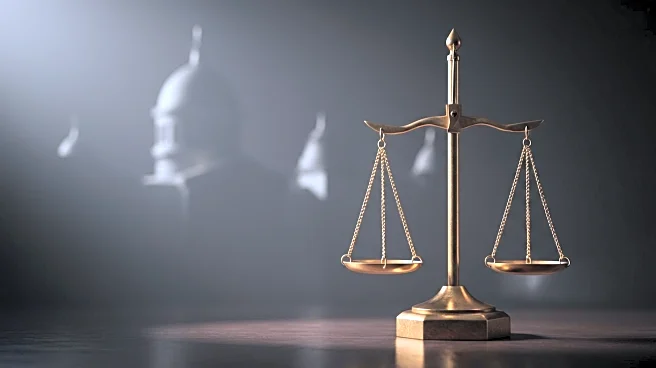What's Happening?
President Trump has expressed support for the Justice Department's decision to send files related to Jeffrey Epstein to the House Oversight Committee. The committee plans to review the materials and ensure victims' identities are redacted before making the records public. Trump emphasized transparency, stating that innocent individuals should not be harmed by the release of information. The move comes amid calls from Republicans for greater transparency in the Epstein case, which has been a contentious issue in Congress. House Oversight Chair James Comer has committed to working quickly to make the records available, while ensuring the protection of sensitive information.
Why It's Important?
The release of Epstein files to the House Oversight Committee is a significant development in the ongoing scrutiny of the Epstein case, which has implications for public trust in government transparency and accountability. The decision to make the records public reflects a broader demand for clarity and openness in high-profile investigations. It also highlights the political dynamics surrounding the case, as Republicans push for more information to be disclosed. The handling of the files will be closely watched, as it involves sensitive information that could impact individuals connected to Epstein.
What's Next?
The House Oversight Committee will review the files received from the Justice Department, with a focus on redacting sensitive information to protect victims. The committee's actions may lead to further revelations about the Epstein case, potentially influencing public opinion and political discourse. The release of the files could also prompt additional investigations or legislative actions related to the case. Stakeholders, including lawmakers and advocacy groups, will likely engage in discussions about the implications of the information disclosed and the broader issues of transparency and justice.










